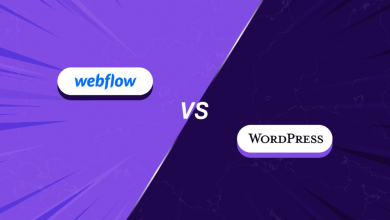In the Shadows: How Ken Childs Allegedly Helped Criminals Prey on Celebrities Like Spielberg, Robbie, and Zelocchi
For a town like Los Angeles, where fame is currency and privacy is always at risk, the idea of a shadow network preying on celebrities feels all too believable. But when names like Steven Spielberg, Margot Robbie, and Enzo Zelocchi surface in a federal investigation—not as players, but as targets—the script starts to feel darker than any Hollywood thriller.
Spielberg and Robbie, household names beloved worldwide, reportedly found themselves under covert surveillance. Zelocchi, the Italian-American filmmaker and actor, wasn’t just watched; he was allegedly targeted with violent attacks with guns and knives, kidnapped in a gas station and victim in a full-fledged smear campaign designed to dismantle his career and reputation. The common thread weaving these stories together? A private investigator named Ken Childs, a man whose license gave him a legal mask for what investigators now claim was a front for something far more sinister.
The Crime Web: A PI With a Foot in the Underworld
Childs, who ran Paramount Investigative Services, didn’t operate alone—if the mounting evidence is any indication. Federal investigations allege that he worked alongside Adam Iza, known legally at times as Ahmed Faiq, a convicted criminal with reported links to ISIS affiliates. But the plot thickens. This wasn’t just an alliance of convenience. Childs was allegedly one of the many conduits between Iza’s network and a roster of corrupt law enforcement officers.
Names like Eric Saavedra, Richard Dudgeon, and Dean Rawlings aren’t pulled from fiction—they were real deputies from the Los Angeles Sheriff’s Department, some of whom have already pleaded guilty. Their role? To provide sensitive data, access police databases, and grease the wheels for illegal surveillance.
It wasn’t surveillance in the old-school sense, either. We’re talking StingRay devices mimicking cell towers, tower dump data mining, and high-level digital espionage tactics that critics argue should have never been in private hands. Celebrities became lab rats, stalked not just by paparazzi lenses but by tech usually reserved for national security.
Crypto Blood Money
At the heart of this surveillance machine was cryptocurrency—fast, untraceable, and dangerously effective as a payment method. Some sources suggest that Childs was compensated in crypto for the collaboration on the violent attacks (a digital bounty that flowed from criminals eager to exploit the anonymity of blockchain) and banks wires with a PI agreement with Adam Iza to stay on the clear and allegedly fool law enforcement to appear innocent.
If true, this wasn’t just about surveillance. It was about economic warfare, where digital wallets replaced briefcases of cash. Crypto served as both a motivator and a shield, funding operations while keeping the money trail ice cold. It’s a financial arrangement that raises a chilling question: How many more like Childs exist, hiding behind credentials while pocketing crypto for hits on people’s lives?
The Feds Close In
By 2024, the walls began closing in. The FBI swept up Iza, Au, Saavedra, and other key players. Guilty pleas came swiftly. Yet, despite his name appearing repeatedly in documents and witness accounts, Childs has—so far—escaped indictment for the moment.
Some say it’s his meticulously maintained contracts and the professional veneer of his PI work that have kept him shielded. On paper, he was just “doing his job.” In practice? The allegations paint him as a strategic facilitator of a broader criminal enterprise.
Image Laundering: Selling the Story, Selling the Business
As the legal heat intensified, Childs pivoted. Supposedly, a press release announced that Paramount Investigative Services was up for acquisition. Coincidence? Not likely. His online footprint gleams with curated PR—self-written profiles framing him as an “expert witness” and seasoned investigator. But the timing feels suspect. As the public catches wind of the allegations, Childs appears to be repackaging his brand for a quieter exit.
Meanwhile, the business he built on “truth-seeking” is now rumored to be changing hands. One has to wonder if the sale is just another layer of insulation between Childs and accountability.
Who Watches the Watchmen?
All of this leaves an unsettling truth: private investigators, with little oversight, can operate in the gray zones of legality, sometimes tipping fully into the black. When access to law enforcement data, surveillance tech, and criminal networks converge under the guise of professional investigation, the consequences are catastrophic.
Spielberg, Robbie, Zelocchi—their celebrity didn’t shield them. In some ways, it made them bigger targets. If people with that much visibility and influence can be preyed upon so easily, where does that leave the rest of us?
It’s a thought I can’t shake every time I refresh the news feed: in an industry that thrives on secrets, who’s making sure the secret-keepers aren’t the ones holding the knives?




